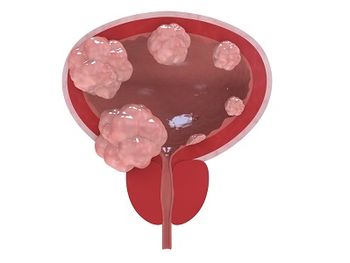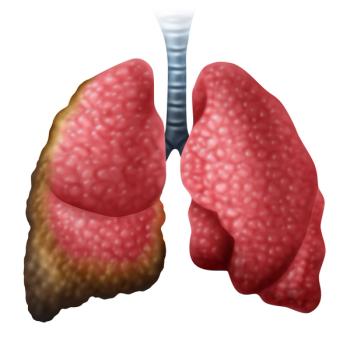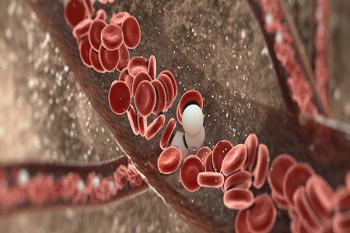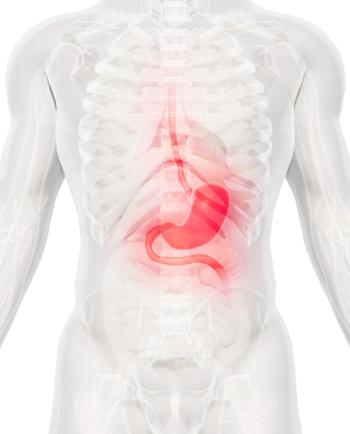
An update of phase 1 data from the CTMX-2051-101 study is expected to be available by the first quarter of 2026.

Your AI-Trained Oncology Knowledge Connection!


An update of phase 1 data from the CTMX-2051-101 study is expected to be available by the first quarter of 2026.

Developers are enrolling those with metastatic castration-resistant prostate cancer on a phase 1/2 trial to assess the safety and tolerability of HLD-0915.

The development of nonnarcotic pain medication after GI surgery may help relieve chronic pain without the risk of opioid dependence.

FLEX study findings show that the MammaPrint Index was predictive of 5-year DRFI for endocrine therapy with or without chemotherapy in early breast cancer.

The drug that the companion diagnostic identifies patients for, zongertinib, received FDA approval for HER2-mutant NSCLC on August 8, 2025.

The decision is based on phase 3 VERITAC-2 trial data showing a significant PFS improvement vs fulvestrant in ESR1-mutant ER+/HER2– breast cancer.

Roxadustat’s developers intend to file the full phase 3 protocol for the FDA in the fourth quarter of 2025.

Shebli Atrash, MD, believes the future for treatment in multiple myeloma, as well as in solid tumors and beyond, includes immune therapies.

Jose Sandoval Sus, MD, discussed the “revolution” that CAR T-cell therapies have facilitated for patients with large B-cell lymphomas.

Adverse reactions in the phase 3 ENVISION trial were largely mild to moderate in severity, and serious reactions occurred in 12% of those with NMIBC.

Symptom specificity is now included in updated guidelines for SCLC relating to LEMS, characterized by proximal muscle weakness and autonomic dysfunction.

Patients reclassified to high-risk clinicopathology with DCISionRT saw an absolute reduction in IBR rates of 11.6%; from 17.7% to 6.1%.

The independent data monitoring committee confirmed the favorable safety profile of ELI-002 7P for the treatment of PDAC in the phase 1/2 AMPLIFY-7P trial.

Following the approval of dato-DXd in untreated EGFR-mutant NSCLC, Jacob Sands, MD, discussed next steps for improving outcomes for this disease.

Developers plan to initiate a phase 2b trial in patients with less severe prostate cancer variants to better assess INKmune’s antitumor effects.

An ongoing, open-label phase 1 study evaluating VT3989 in mesothelioma revealed positive early efficacy and encouraging safety with the agent.

Findings from the phase 3 TALAPRO-2 trial showed that the safety profile of talazoparib was consistent with its known profile in metastatic CRPC.

Phase 2 CRDF-004 results revealed that adding onvansertib to chemotherapy/bevacizumab was well tolerated, with no unexpected toxicities observed.

AMPLIFY trial results form the basis of the submission, with venetoclax/acalabrutinib showing a PFS advantage vs chemoimmunotherapy in patients with CLL.

Results from the phase 3 MATTERHORN trial support the FDA’s designations for durvalumab in gastric/gastroesophageal junction cancers.

Results from the phase 3 GMMG HD7 trial support the approval of the isatuximab-based combination in patients with newly diagnosed multiple myeloma.

Personalized kidney cancer vaccines may help guide immune therapies to more effectively attack cancerous cells while mitigating harm to healthy tissue.

A genitourinary oncologist explained that KIM-1 can be used to diagnose, risk-stratify, and detect disease and monitor disease treatment in patients with kidney cancers.

Phase 3 DREAMM-7 and DREAMM-8 trial results showed that combinations with belantamab mafodotin showed superior efficacy vs standard of care in the disease.

The agency’s decision is based on results from the phase 1 RMC-6291-001 clinical trial evaluating elironrasib monotherapy in patients with solid tumors.

Support for the regulatory decision follows data from a phase 1/2a clinical trial assessing the agent in EGFR-mutant NSCLC at the 2025 ASCO Annual Meeting.

The FDA indicated that data from the phase 1/2 IGNYTE trial were not adequate to provide evidence of effectiveness.

EU approval of the agent is based on results from the phase 2b ReNeu trial, which met its primary end point of confirmed objective response rate in NF1-PN.

Many patients reported social/financial vulnerabilities that possibly precluded them from transplant access outside of the phase 2 clinical trial.

The regulatory decision is based on data from the phase 3 DESTINY-Breast09 results presented at the 2025 ASCO Annual Meeting.